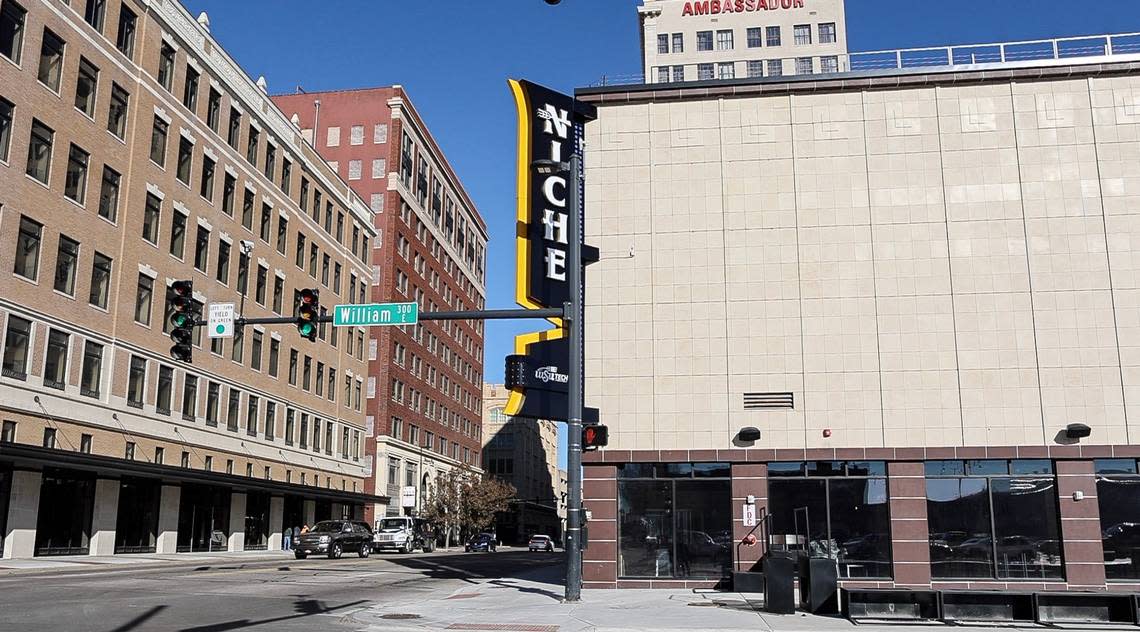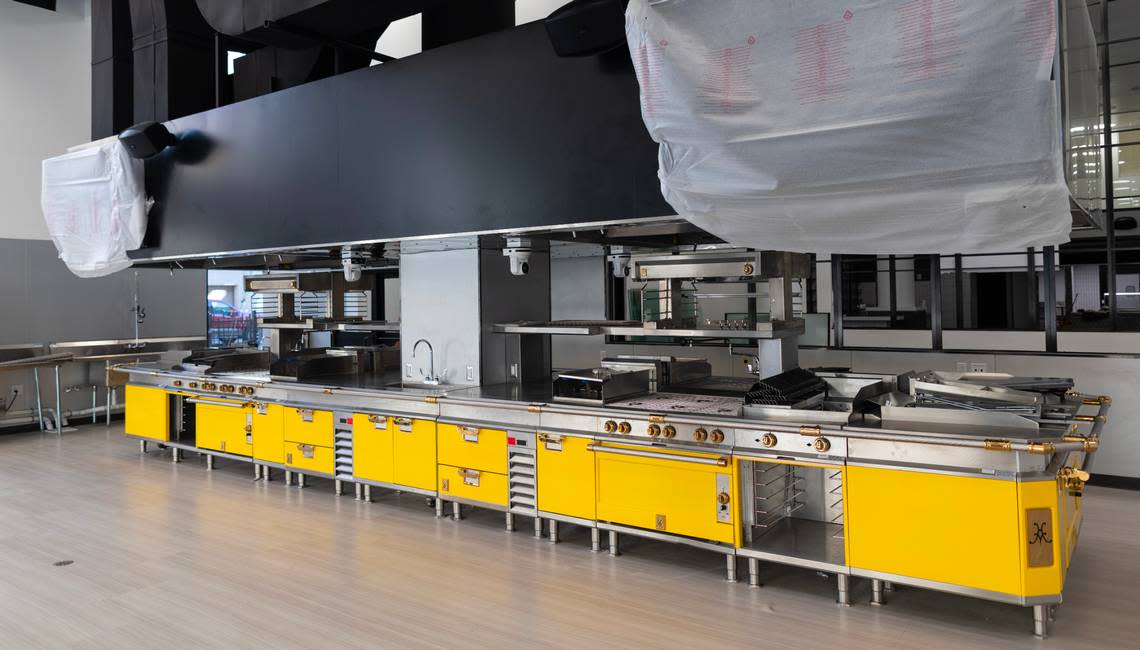Take a sneak peek at NICHE, downtown’s new culinary school, food hall and event space
The former Henry’s building at William and Broadway in downtown Wichita is about to experience new life as WSU Tech’s National Institute for Culinary and Hospitality Education, or NICHE.
Director John Michael said the goal “to celebrate and enhance our culinary landscape” through innovation, accessibility and sustainability.
“We want to make a difference.”
Classes start in January. The school is hosting information sessions for potential students at 10 a.m. Dec. 6 and 3 p.m. Dec. 8.
The 63,000-square-foot building, of which WSU Tech is taking 23,000 square feet, is going to have a lot more than the school.
Just off the main Broadway entrance, there will be a food hall on the first floor that will be open to the public for dining and have educational elements for students as well.
The first restaurant to open will be a Jinya Ramen Bar franchise to the right of the entrance. It will open around the same time as the school.

The second will be Envision Bistro to the left of the entrance and the Envision Innovation Kitchen, which will be a culinary lab for students and a kitchen for the bistro. The bistro will open in July.
In partnership with Envision, the nonprofit that serves the blind and visually impaired, the school will have a culinary pilot program for the blind and visually impaired, “which is a pretty groundbreaking program,” Michael said.
There will be seating in the bistro and another 24 seats in the kitchen area.
The bistro and Jinya will have separate seating, and there will be more seating throughout the food hall, where there will be at least three kiosks lining the hall and two in the center. Michael said there’s room for more, but that and the timing of the kiosks is up to developer Sudha Tokala and not the school.
Kitchens, kitchens, kitchens
On the mezzanine of the building, there will be the Cargill Culinary theater, “which will be like a demonstration kitchen,” Michael said.
There also will be office areas and a green room for celebrity chefs who visit.
Michael and his wife, Lexi, who is department chair of the school, will have their own branded Michael Observation Deck overlooking the food fall.
“It’s kind of cool multiuse space,” John Michael said.
There will be a mix of furniture, including lounge seating, and it can be a place for meetings.
The culinary school will be on the third floor and will have a variety of lab kitchens — including a pastry kitchen, a banquet kitchen and a chocolate room — along with classroom space, a conference room and a student lounge.
Tokala added a new rooftop event space to the 1948 building. It will have an indoor and outdoor component.

The basement also will be utilized for a student library, study rooms, office space, storage and walk-in coolers.
In addition, there will be an incubation kitchen in the basement that vendors in food hall can use and the public can rent to test new business concepts.
Most of the the rental spaces within the building will have a catering component for the school.
Michael said the first purpose for WSU Tech is to be an educational facility, but he said, “Part of the business model is we will also make some money as well.”
The cost of a two-year associate of applied science culinary arts degree is $12,010, which doesn’t include tools, books or online fees.
A one-year technical certificate in culinary arts is $5,600, not including tools, books or online fees.
A one-year technical certificate in culinary arts for the blind and visually impaired is $5,593, not including tools, books or online fees.
Michael called the school’s opening “an extremely significant first step,” but Michael said there are going to be dynamic opportunities in the future as well, including for community partnerships, with the school “constantly looking for ways to innovate and do different things.”
